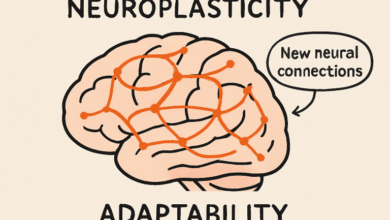What Is Integrative Behavioral Health Sciences? A Guide for Patients and Families

Integrative behavioral health sciences represent a comprehensive approach to mental health care that combines traditional psychiatric practices with innovative, evidence-based treatment modalities.
Table of Contents
The Foundation of Integrative Behavioral Health Sciences
This field emerged from the recognition that mental health conditions require multifaceted treatment strategies addressing both biological and psychological factors. The approach emphasizes collaboration between various healthcare professionals, creating a unified treatment plan that considers the whole person rather than isolated symptoms.
Patients and families benefit from this holistic methodology as it provides more personalized care options tailored to individual needs and circumstances.
Core Components of Integrative Treatment Approaches
The field encompasses various therapeutic interventions that work synergistically to address mental health challenges. Traditional medication management remains a cornerstone, but practitioners also incorporate cutting-edge treatments such as transcranial magnetic stimulation (TMS), ketamine-assisted therapy, and specialized psychotherapy techniques.
These evidence-based approaches are carefully selected based on individual patient presentations and treatment histories. The integration of multiple modalities allows healthcare providers to address treatment-resistant conditions more effectively while minimizing potential side effects through reduced reliance on single treatment methods.
Patient Population and Scope of Services
Integrative behavioral health sciences serve a diverse patient population spanning adolescents through geriatric individuals. The approach addresses various mental health conditions including depression, anxiety disorders, post-traumatic stress disorder (PTSD), bipolar disorder, and attention deficit hyperactivity disorder (ADHD).
Private behavioral health practices specializing in this field offer individualized treatment plans that evolve with patient progress. The comprehensive nature of care ensures that patients receive appropriate interventions regardless of their age, condition severity, or previous treatment experiences.
Treatment Modalities and Innovative Approaches
Modern integrative practices employ non-traditional medical approaches that complement conventional psychiatric treatments. These include intranasal esketamine (Spravato) therapy, intravenous ketamine treatments, and various forms of neurostimulation.
The selection of specific treatments depends on thorough assessment of patient history, current symptoms, and treatment goals.
Healthcare providers within this field maintain expertise in multiple treatment modalities, allowing for seamless transitions between approaches as patient needs change throughout the recovery process.
The Role of Specialized Healthcare Providers
Integrative behavioral health sciences relie on multidisciplinary teams comprising registered nurses, advanced practice nurses, and specialized physicians.
These providers possess extensive knowledge in both traditional and innovative treatment approaches. The collaborative model ensures that patients receive comprehensive care from professionals who understand the complex interplay between different treatment modalities.
This team-based approach enhances treatment outcomes by leveraging diverse expertise and maintaining consistent communication about patient progress.
Geographic Accessibility and Practice Locations
The field has expanded geographically to serve communities across various states, with specialized practices now available in multiple locations. Kansas mental health medicine providers exemplify this expansion, offering integrative services to patients in the Midwest region.
These practices maintain consistent quality standards while adapting to local community needs and healthcare infrastructure. The geographic distribution of services ensures that patients can access specialized care without extensive travel, making treatment more feasible for families dealing with mental health challenges.
Benefits for Patients and Families
Patients experience several advantages through integrative behavioral health approaches, including reduced treatment duration, improved symptom management, and enhanced quality of life.
The personalized nature of treatment plans means that interventions are specifically tailored to individual circumstances, increasing the likelihood of successful outcomes.
Families benefit from comprehensive support systems that address not only the patient’s needs but also provide education and resources for family members navigating mental health challenges.
Insurance Coverage and Accessibility
Many integrative behavioral health practices accept various insurance plans, making specialized care more accessible to diverse patient populations. The financial aspect of treatment is carefully considered, with practices often providing insurance verification services to help families understand coverage options.
This accessibility component ensures that innovative treatments remain available to patients regardless of their economic circumstances, promoting equitable access to advanced mental health care.
See also: What Is Functional Neurology? A New Approach to Healing the Brain
Future Directions and Continued Innovation
The field continues evolving with ongoing research into new treatment modalities and improved integration techniques. Practitioners maintain commitment to evidence-based practices while remaining open to emerging therapies that demonstrate efficacy.
This forward-thinking approach ensures that patients benefit from the latest developments in mental health treatment while maintaining the safety and reliability of established therapeutic interventions.



